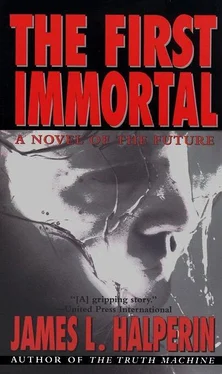Although the letters had never reached him, Alice implied that his fiancée had written faithfully. “…You might already know from her daily bulletins, but if my letter reaches you first, I’m sure you’ll be happy to learn that Marge received another promotion at the steel mill yesterday. At this rate, she’ll soon supervise the entire accounting department. She does fret over how you’ll feel about her working, but I’ve assured her that you’ll approve. Anything to help the war effort, right? Of course she intends to quit the moment you return to us. She misses and worries about you constantly, as we all do, and says the work helps keep her mind distracted…”
It was barely noon and Ben had read his mother’s letter five times.
He daydreamed about Marge and their last night together, the night they’d broken their vow to save themselves for their wedding day. “What if I never see you again?” Marge had said to him. “I’ll need the memory of you, Ben.” But he knew her concerns had been more for him, for his memories; memories that might help keep him alive for her. They’d rented a hotel room, shared a glass of wine.
The first attempt had been clumsy. But it was sweet and close and without the self-consciousness that so often interfered with pleasure. By morning they’d taught each other what to do. The teaching had been mostly wordless, but the lessons well-learned. The number of times they learned them assured that: four times in all.
Four times that Ben would relive ten thousand times each.
Colonel Rand interrupted Ben’s reverie to ask him, and several other soldiers and sailors, to gather every able-bodied prisoner into the central courtyard. “Got an announcement to make,” he said.
“Yes, sir… Oh. Yes sir!”
When Ben got there, the courtyard was packed with all but a few of the 344 allied personnel still alive at Futtsu.
The officer began the speech, his smile too obvious. Ben’s heart soared before Rand uttered the words: “The commandant just told me, uh, the Japanese finally surrendered to us. About thirty-six hours ago. We’re goin’ home, boys, war’s over.”
Several minutes passed before the hugging and cheers and whistles ceased, and Rand could finally continue. “Purgatory is now your camp, and the Nips are our prisoners. But remember, we’re no longer at war. I know some a you guys are mad as hornets. I’ve hated ‘em as much as any a you, but grudges just ain’t part a the American way. So remember that, and do us proud.”
Ben immediately found Ensign McGuigan and hugged him. “Without you, I would never have lived to see this day.”
“Best thing I ever did,” Mack said. “Couldn’t’a picked a better man to pull from the drink. Or a braver one. Every hour you spent helping Epstein treat those sick boys, you gambled against getting sick yourself. Until a few months ago, that could be a death sentence. Now you just go home and become the kind of doctor you were here in Purgatory. Any doc can pass out pills or poke your butt with a needle, but I ain’t seen too many who let you know they give a rat’s ass. And it matters, boy. It matters a lot.”
Most ranking officers at Japanese prison camps would commit suicide rather than face Anglo-American military justice.
Taisa Hiro Yamatsuo, however, would spend fifty-eight months in an allied military prison, return home to marry, build a successful manufacturing business, produce six daughters and a son, and be felled by an aneurysm in November 1987, having recalled his short conversation on April 12, 1945 with Fire Controller Third Class Benjamin Smith countless times during the final forty-two of his eighty years of life.
June 17, 1947
Ben’s fifth semester at Harvard had ended the week before, but he looked forward to the summer session scheduled to begin in nine days. He wiped the sweat from his forehead and gazed out their tiny window upon the steamy street below. They had no electric fan—he and Marge needed the money for food and rent, and certainly didn’t want to ask their parents for more handouts—but they’d become used to the heat.
Ben and Marge Smith had been married fifteen months. They lived on a noisy street near Harvard Square in Cambridge in a rented one-room apartment, a fifth-floor walk-up with no hot water and a bathroom shared with two other families down the hall. The seventeen dollars monthly rent seemed like an extravagance. The GI Bill barely covered Ben’s tuition and expenses, forcing him to get through Harvard College and Harvard Medical School on loans, scholarships, and part-time work. Yet even after Marge became pregnant, he was sure they could scrape by.
“Benny, I think it’s time,” she said.
The bag was already packed. Calmly, he walked her downstairs and hailed a taxi. Although they couldn’t afford it, he refused to chance the bus. “Boston Veterans Hospital, please,” he told the cabdriver. “Fast. My wife’s about to have a baby!”
The driver’s eyebrows slid up his forehead as if trying to escape. “Don’t worry, ma’am. We’ll make it.”
Throughout the trip, Ben held Marge close, rubbing her back and shoulders.
The fare was sixty cents, but Ben gave him a dollar. “Best cab ride we ever had.” In fact, it was the only cab ride they’d ever had.
“Hey, thanks,” the man told them, his hand closing over the two silver halves. “And good luck.”
Ben escorted his wife through the emergency entrance. The walls were clean and white. Even the floors looked spotless; more safe than sterile. While Marge waited, Ben checked in at the desk. The Veterans Administration would pay for everything. Their first child would be born in a real hospital.
Husbands, even premed students like Ben, were required to sit in another room while their wives endured labor and delivery, so he found a pay phone and called Toby Fiske. Also a Harvard premed, Toby still lived at his mother’s house in Wakefield.
Toby arrived about ninety minutes later and waited with Ben. Except for the two young vets, the large waiting room was empty. They sat, mostly in silence, surrounded by vending machines, coffeepot, water cooler, and dozens of magazines. How blessedly and terribly apart males were, Ben thought. Vended treats to make them feel at home. He hoped Marge was okay, but doubted she was feeling too at home right then.
“You scared?” Toby asked.
“Not really,” Ben said. “Wish I was inside. With Marge…”
“Instead of out here with the likes of me?”
Ben laughed. “Yeah, though I wouldn’t’ve put it quite that way…”
Toby smiled. “What I actually meant was, are you frightened, y’know, about parenthood? And all that responsibility? Don’t think I could handle it myself.”
“Actually,” Ben laughed, “I’m more alarmed at the prospect of giving up sex for the next six weeks!”
“Well, I can see how that… Hey? You mean you’ve still been having sex?”
Ben nodded. “Remember the pennies-in-ajar parable?”
“Sure,” Toby said. “If a newlywed couple puts a penny in a jar every time they make love during the first year of the marriage, and removes a penny every time after that, no matter how long the marriage lasts, they say, the jar will never be empty.”
“I told Marge that story before we got married She took it as a challenge! We actually keep a piggy bank by our bed now.”
Toby laughed. “You sly devil.”
“Y’know,” Ben said earnestly, “we always wanted a family. Not sure I envisioned it happening quite this soon, but I think we’re ready.”
“Scary time to have kids,” Toby said, “with the A-bomb and all. They say the commies’ll have one in ten years.”
Ben was amused at his friend’s bluntness. Toby and he had always shared their thoughts without affectation or artifice. “They’d never dare use it. Old buddy, this is the most exciting time in history. If anything, I was born too soon. When I think of the scientific miracles this child might see… Our baby’s gonna live a much longer and healthier life than you or I will. And see things we can’t even imagine.”
Читать дальше












